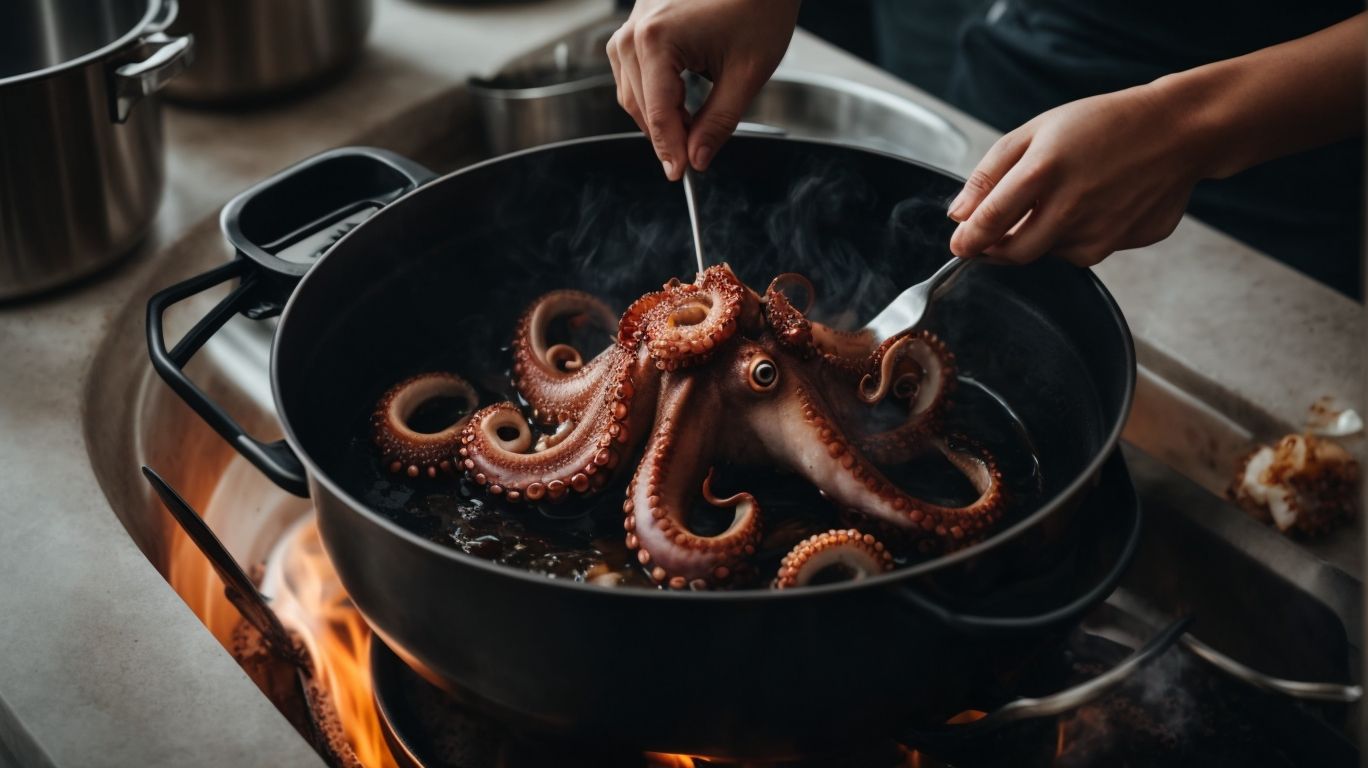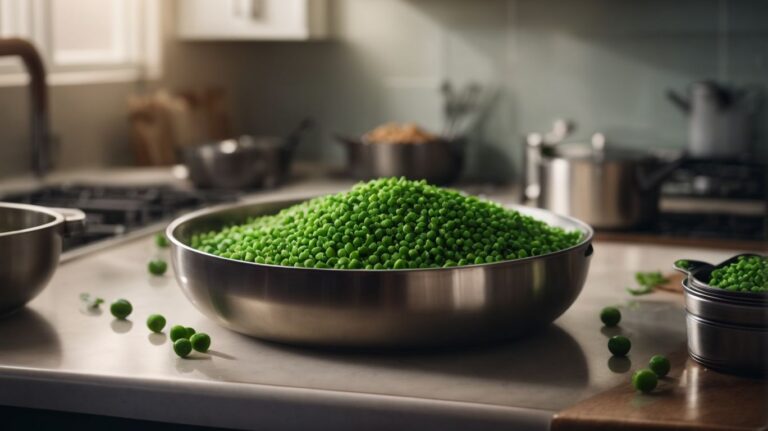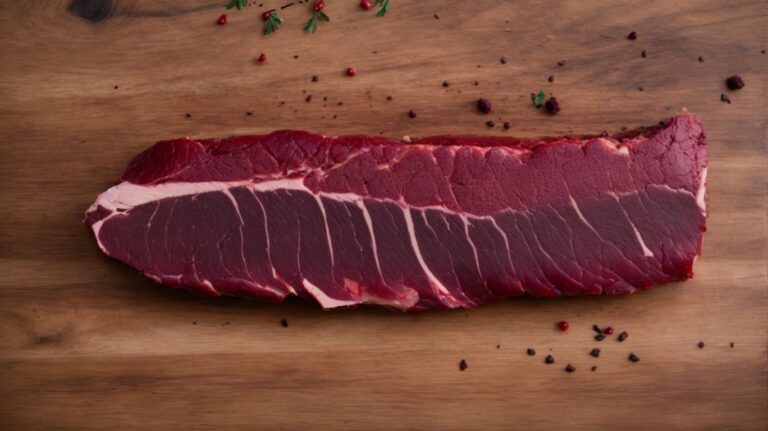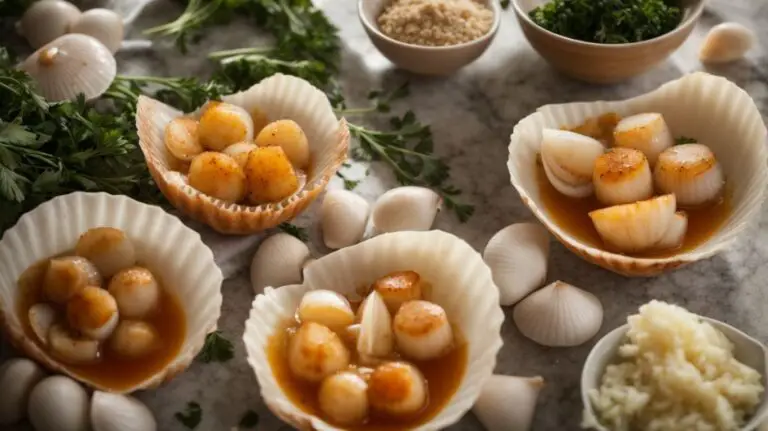How to Cook Octopus?
Are you curious about cooking octopus but not sure where to start?
In this article, we will explore everything you need to know about octopus, from where to buy it to how to prepare it for cooking.
We will discuss the different types of octopus, where to find fresh octopus, and the best cooking methods for this delicious seafood.
Stay tuned for cooking tips, tricks, safety precautions, and some mouthwatering octopus recipes that will surely impress your guests.
Let’s dive into the world of octopus cooking together!
Key Takeaways:
What is Octopus and Where to Buy It?
Octopus is a popular seafood delicacy known for its unique texture and flavor. When looking to buy fresh octopus, consider visiting local seafood markets or specialty stores for the best quality.
Fresh octopus has a firm yet tender consistency, making it versatile for cooking methods like grilling, boiling, or frying. Its subtle briny taste pairs well with various herbs, spices, and sauces, allowing for a range of culinary creativity.
In terms of availability, coastal regions are prime areas for sourcing fresh octopus due to their proximity to the ocean. Look for octopus that has clear eyes, a mild aroma of the sea, and firm flesh without any sliminess or discoloration to ensure freshness and superior quality.
Quality is paramount when selecting seafood, especially with delicate options like octopus, to ensure a delightful dining experience.
What Are the Different Types of Octopus?
There are several types of octopus species, each with unique characteristics and culinary applications. Understanding the differences between these varieties can enhance your cooking experience with octopus.
One popular type of octopus used in culinary dishes is the common octopus. Common octopus, known for its reddish skin and bulbous head, offers a tender texture and a delicate, slightly sweet flavor. On the other hand, the larger Pacific octopus boasts a firmer texture and a more robust, savory taste, making it ideal for grilling or marinating.
In terms of specific cooking methods, smaller octopus varieties like the baby octopus are often tender enough to be quickly stir-fried or grilled. In contrast, larger species like the giant Pacific octopus may require slower cooking techniques such as braising or roasting to achieve optimal tenderness and flavor.
Where Can You Find Fresh Octopus?
Fresh octopus can be sourced from reputable seafood markets, fishmongers, or online suppliers specializing in premium seafood products. Ensuring the freshness and quality of the octopus is essential for achieving the best results in your culinary creations.
When selecting fresh octopus, it’s crucial to look for clear, glossy eyes, intact and vibrant skin, and a pleasant oceanic smell. Opt for suppliers known for their high-quality seafood and ethical sourcing practices.
Some renowned seafood markets such as Pike Place Market in Seattle or Billingsgate Market in London are excellent places to find fresh octopus. Online platforms like Fulton Fish Market or Catalina Offshore Products also offer a wide selection of premium seafood, including fresh octopus, delivered straight to your doorstep.
Preparing Octopus for Cooking

Credits: Poormet.Com – Jeffrey Green
Before cooking octopus, it is crucial to clean and tenderize it properly to ensure a delightful dining experience. These preparation steps can significantly impact the final texture and taste of the dish.
When cleaning octopus, begin by rinsing it under cold water to remove any residual debris. Next, peel off the skin and discard it, revealing the firm flesh underneath. To further purify the meat, you can massage it with coarse salt or soak it in a brine solution. Tenderizing the octopus involves methods such as pounding, boiling, or slow cooking to break down its tough fibers. These techniques help achieve a tender consistency that enhances the overall enjoyment of the dish.
How to Clean and Tenderize the Octopus?
Cleaning and tenderizing octopus involves rinsing it thoroughly in cold water to remove residual substances and then employing techniques like massaging or boiling to achieve the desired tenderness.
After the initial rinsing, massage the octopus gently to break down its tough muscle fibers, making it more tender. This step is crucial in enhancing the texture and taste of the final dish. Consider boiling the octopus in a mixture of water, salt, and aromatics such as bay leaves or peppercorns to infuse it with flavor. Boiling time depends on the size of the octopus, with smaller ones needing less time to cook. To ensure a clean and tender octopus, always remove the beak and ink sac before cooking.
What Are the Best Cooking Methods for Octopus?
Octopus can be cooked using various methods such as grilling, stewing, or sous vide, each offering unique textures and flavors to the dish. Choosing the right cooking method can elevate the overall dining experience.
Grilling octopus imparts a delicious smoky flavor while creating a slightly charred exterior with a tender interior. The caramelization from the high heat further enhances the natural sweetness of the octopus.
On the other hand, stewing octopus involves slow cooking in a flavorful broth, resulting in a melt-in-your-mouth texture with rich, savory undertones. This method is perfect for infusing the octopus with various herbs and spices.
Sous vide cooking, a precision technique, ensures that the octopus is cooked evenly and retains its juiciness. It allows for precise control over the texture, yielding a silky and tender consistency that pairs well with a variety of seasonings.
Octopus Cooking Tips and Tricks
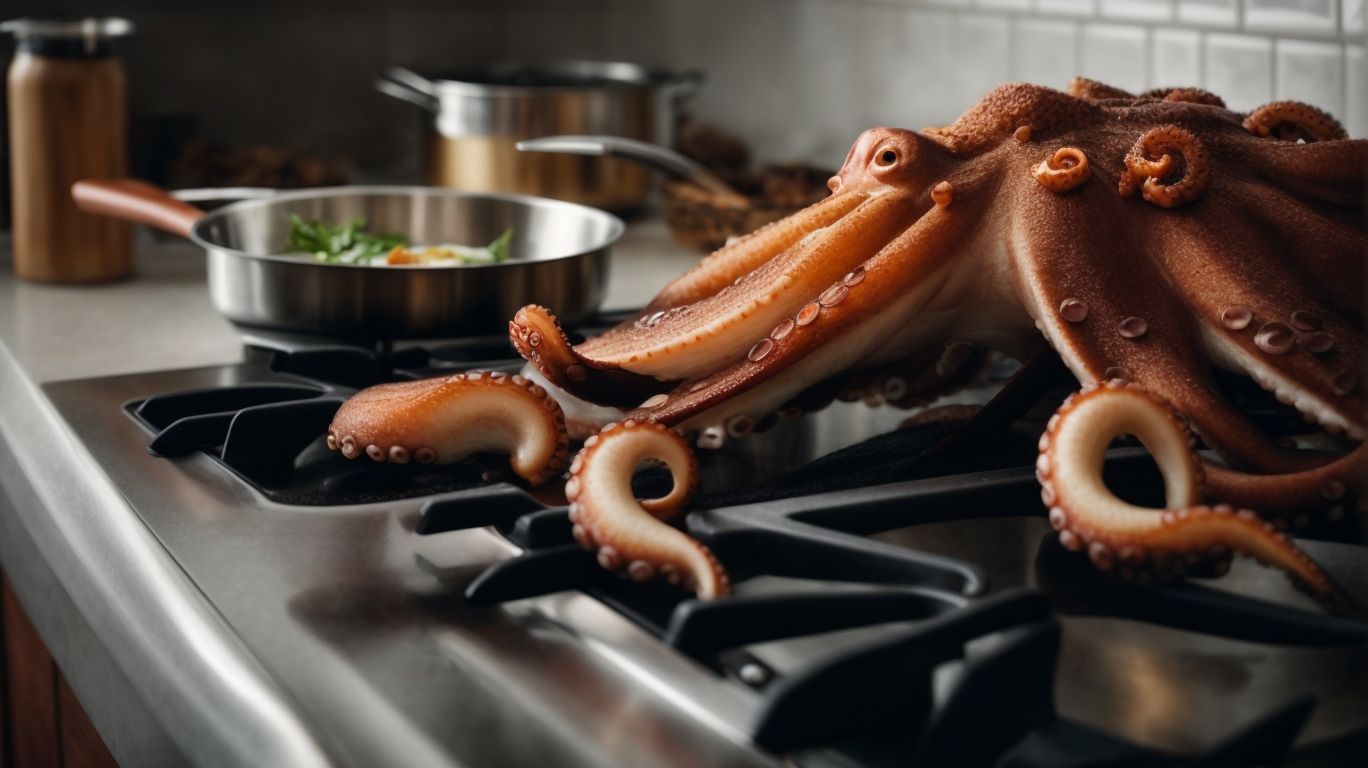
Credits: Poormet.Com – Bradley Roberts
Enhancing the flavor of octopus dishes and avoiding common cooking mistakes can help you achieve culinary excellence with this seafood delicacy. By incorporating specific tips and tricks, you can create memorable octopus meals.
One key element in elevating the taste of octopus is the seasoning you choose. Opt for a combination of salt, pepper, garlic, and paprika to add depth and warmth to the dish. Consider pairing octopus with complementary ingredients such as lemon, olive oil, fresh herbs, and chili flakes to enhance its natural flavors.
In terms of cooking techniques, slow cooking, grilling, or braising the octopus can yield tender and succulent results. Avoid overcooking, as this can lead to a rubbery texture. To tenderize the octopus, you can try marinating it in citrus juice or vinegar before cooking.
How to Enhance the Flavor of Octopus?
Elevating the flavor of octopus dishes can be achieved by incorporating ingredients like garlic, lemon juice, olive oil, and fresh herbs. These flavor enhancers add depth and complexity to your culinary creations.
When preparing octopus, consider creating a marinade using a combination of minced garlic, lemon juice, olive oil, and a blend of your favorite herbs such as parsley, thyme, or oregano. The acidity of the lemon juice helps tenderize the octopus while infusing it with a bright, citrusy flavor. For a Mediterranean twist, mix olive oil, garlic, lemon zest, and a pinch of salt and black pepper to create a simple yet delicious marinade.
What Are Some Common Mistakes to Avoid When Cooking Octopus?
Avoiding common pitfalls like overcooking or underseasoning octopus dishes is crucial for preserving its delicate texture and flavors. Being mindful of these mistakes can lead to more enjoyable dining experiences.
Overcooking octopus is a typical error that can result in a rubbery and tough texture. To prevent this, try simmering the octopus gently until it is just tender. You can achieve this by using a low and slow cooking method, such as simmering in a flavorful broth at a low temperature.
- When addressing underseasoning, remember that octopus benefits from robust flavors. Enhance the taste by marinating it in a mixture of herbs, garlic, lemon juice, and olive oil before cooking.
- Proper cleaning is also vital to remove any residual slime, which can affect the overall taste. Ensure you thoroughly clean the octopus under cold running water, paying special attention to the tentacles.
Delicious Octopus Recipes
Exploring a variety of octopus recipes such as grilled octopus with lemon and herbs, octopus ceviche, and octopus stew can introduce a delightful range of flavors and culinary experiences for seafood enthusiasts.
Grilled octopus with lemon and herbs offers a charred smokiness balanced by bright citrus notes, creating a harmonious blend of flavors that will tantalize your taste buds. To prepare this dish, tenderize the octopus by simmering it gently in a flavorful broth before grilling to perfection.
For a refreshing option, octopus ceviche combines tender octopus with zesty lime juice, cilantro, and a hint of chili for a mouthwatering appetizer. The acidity of the citrus helps ‘cook’ the seafood, resulting in a fresh and vibrant dish.
If you’re craving a hearty meal, octopus stew served with crusty bread is a comforting choice. Slow-cooked in a rich tomato base with aromatic spices, the tender octopus becomes infused with layers of robust flavors.
Grilled Octopus with Lemon and Herbs
Grilled octopus with zesty lemon juice and aromatic herbs offers a harmonious blend of flavors and textures, creating a succulent seafood dish that is both simple to prepare and impressive to serve.
Preparing this delectable dish starts with selecting a fresh octopus, preferably with a firm texture and vibrant color, indicating its quality. Begin by cleaning the octopus thoroughly, making sure to remove any impurities. For marinating, combine olive oil, freshly squeezed lemon juice, minced garlic, salt, pepper, and a medley of fresh herbs such as parsley, thyme, and oregano to infuse the marinade with a burst of flavors.
Allow the cleaned octopus to soak in the marinade for at least an hour, or preferably overnight, in the refrigerator to enhance the absorption of the flavors. When ready to grill, preheat the grill to medium-high heat and carefully place the marinated octopus on the grill, allowing it to cook until tender and charred, which typically takes around 15-20 minutes.
For garnishing, consider drizzling extra virgin olive oil and a squeeze of fresh lemon juice over the grilled octopus for a refreshing finish. Serve the grilled octopus on a platter, garnished with lemon wedges, chopped herbs, and a sprinkle of sea salt to elevate the presentation and flavor profile of this exquisite seafood delight.
Octopus Ceviche
Octopus ceviche, featuring fresh parsley, olive oil, and vibrant citrus flavors, offers a refreshing and light seafood appetizer that showcases the delicate nature of octopus in a tangy and aromatic presentation.
To prepare this delightful dish, start by acquiring fresh octopus of high quality, free of any fishy smell or off-putting texture. Begin by thoroughly cleaning and removing the head, eyes, and beak, ensuring only the tender tentacles remain. Next, dice the octopus into bite-sized pieces, providing a perfect texture for soaking up the delicious marinade.
In a mixing bowl, combine the diced octopus with freshly chopped parsley, a generous drizzle of olive oil, and the juice of citrus fruits such as limes or oranges. Allow the octopus to marinate in this zesty mixture for at least 30-60 minutes to infuse the flavors deeply into the seafood.
Before serving, season the ceviche with a pinch of sea salt and a dash of black pepper to enhance the taste profile. Serve the octopus ceviche chilled, garnished with additional parsley and a drizzle of olive oil for a visually appealing and flavorful seafood experience.
Octopus Stew with Potatoes and Tomatoes
Octopus stew simmered with hearty potatoes and flavorful tomatoes creates a comforting and satisfying dish that highlights the rich umami flavors of octopus alongside the earthy sweetness of vegetables.
One of the key aspects of preparing a delicious octopus stew is ensuring that the octopus is cooked slowly to achieve that perfect tenderness.
Start by cleaning the fresh octopus thoroughly and then cutting it into bite-sized pieces.
Heat some olive oil in a large pot over medium heat and add in chopped onions and garlic for a fragrant base.
Add the octopus pieces to the pot, allowing them to cook in their own juices before adding in the cubed potatoes and juicy tomatoes.
Season with a generous pinch of salt, freshly ground black pepper, a splash of white wine, and a sprinkle of dried oregano for that Mediterranean touch.
Safety Precautions When Cooking Octopus

Credits: Poormet.Com – Nicholas Lopez
Practicing safety precautions when handling and cooking octopus is essential to prevent foodborne illnesses and ensure a hygienic culinary environment. Following proper protocols can safeguard your health and well-being during the cooking process.
When working with octopus in the kitchen, it’s crucial to start by ensuring the freshness of the seafood. Always purchase octopus from reputable sources and check for any signs of spoilage before proceeding with cooking. Proper storage is key – store octopus in the coldest part of the refrigerator to maintain its quality and prevent bacterial growth.
During handling, wear gloves to minimize direct contact with the octopus and avoid cross-contamination with other ingredients. Rinse the octopus thoroughly under cold water before cooking to remove any residual debris or bacteria.
When cooking octopus, make sure to cook it thoroughly to an internal temperature of at least 145°F to kill any harmful pathogens. Use separate cutting boards and utensils for raw octopus to prevent contamination with other foods.
Conclusion: Enjoying Your Perfectly Cooked Octopus
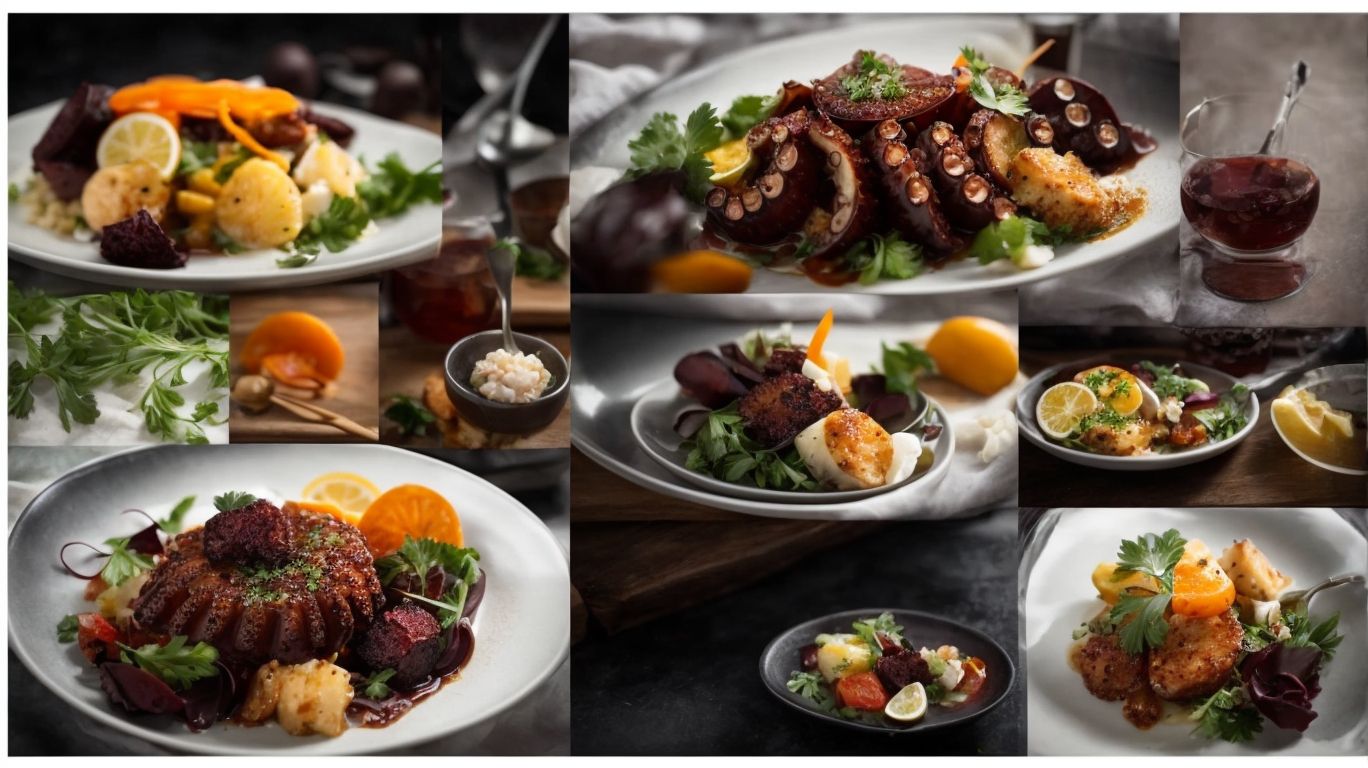
Credits: Poormet.Com – Ryan Campbell
Mastering the art of cooking octopus and savoring its delectable flavors can elevate your culinary skills and delight your taste buds with each perfectly cooked bite. Embrace the versatility of octopus in your kitchen and enjoy the rewarding experience of preparing this exquisite seafood.
Experimenting with diverse octopus recipes allows you to explore a world of flavors, from tender braised octopus to grilled octopus with a zesty marinade. Flexibility is key when it comes to cooking octopus – try boiling, grilling, or even incorporating it into a vibrant seafood paella.
By playing with various cooking methods and seasonings, you can uncover a wealth of culinary possibilities that will keep your taste buds intrigued and your dining experiences unforgettable.
Frequently Asked Questions
What is the best method for cooking octopus?
The best method for cooking octopus is to boil it in salted water for about 40-45 minutes until tender. This will ensure a tender and flavorful result.
How do you clean an octopus before cooking?
To clean an octopus, first remove the head and beak. Then, rinse it thoroughly under cold water and remove the skin. Finally, remove the beak and innards and rinse again before cooking.
What are some alternative ways to cook octopus?
Apart from boiling, you can also grill, roast, or braise octopus for different textures and flavors. It can also be used in stews or soups for a hearty meal.
How do you know when an octopus is cooked?
Octopus is cooked when it turns a vibrant color and the flesh is tender and easy to pierce with a fork. It should also easily detach from the skin when gently scraped with a knife.
Should you marinate octopus before cooking?
It is not necessary to marinate octopus before cooking, but it can add extra flavor. If marinating, keep it for a maximum of 30 minutes in the fridge to avoid the meat becoming mushy.
Can you freeze octopus for later use?
Yes, you can freeze octopus for up to 3 months. However, it is best to cook it before freezing for better texture and flavor. Thaw it in the fridge overnight before cooking.

